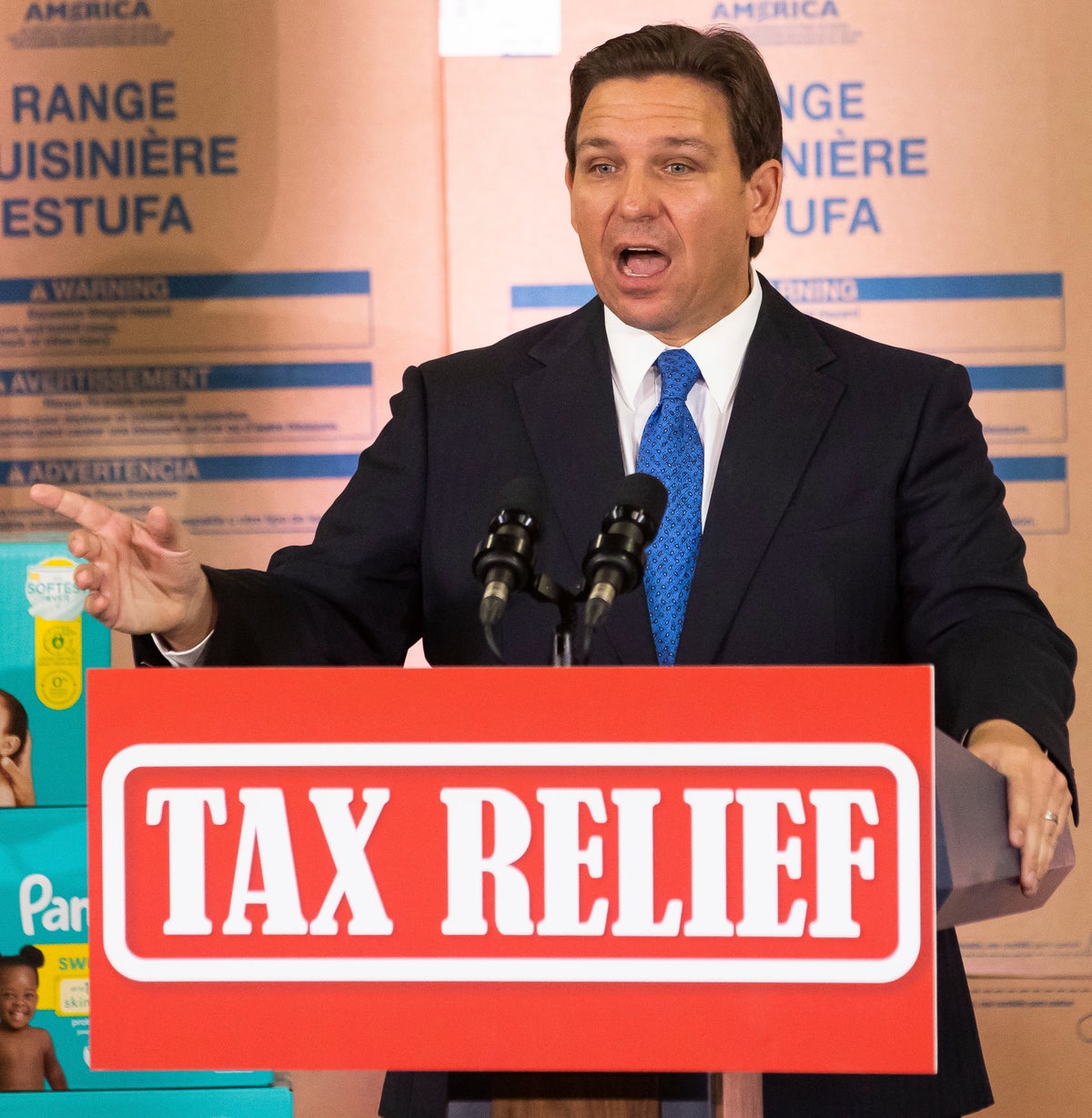
Florida lawmakers advanced proposals on Wednesday to strip Disney of its self-governing status, expand a controversial migrant transportation program and strengthen prosecutions tied to the state’s election police unit.
The bills, part of a hastily called special legislative session in the GOP-controlled statehouse, are key priorities of Republican Gov. Ron DeSantis as he focuses on cultural issues ahead of his expected 2024 White House run.
Republicans in a House state affairs committee approved legislation to complete the state takeover of Walt Disney World’s Reedy Creek Improvement District. The measures come as the governor punishes the company over its opposition to a law critics call “Don't Say Gay,” which bars instruction on sexual orientation and gender identity in kindergarten through third grade and lessons deemed not age-appropriate.
The proposal would leave much of the district intact, including its financial obligations, but would rename it to the Central Florida Tourism Oversight District and require DeSantis to appoint a five-member governing board. Board members previously were named through entities controlled by Disney.
“This is obliviously now going to be controlled by the state of Florida, which is no longer self-governing for them," DeSantis said at a news conference Wednesday. “So, there’s a new sheriff in town, and that’s just the way its going to be.”
Having a separate government allows the Disney district to issue bonds and provide zoning, fire protection, utilities and infrastructure services on its land. Republican opponents of the district argue it gives Disney a commercial advantage unavailable to others.
Democratic Rep. Anna Eskamani said the governor would have too much control over the district when he appoints board members and labeled the takeover as a power grab.
“I often see this as a low security prison that the company is operating within, where they can pretty much do what they want to do, but if they go off course, they’ll be punished,” she said. “And when you have one official — the governor — appoint board members, it’s not designed to be balanced. It’s designed to pursue what his political motivations and values are.”
The Disney district legislation now moves to the full House.
Also on Wednesday, Republicans in the full Senate and the House judiciary committee passed separate bills to further DeSantis’ agenda on immigration and voter fraud.
One proposal would create the Unauthorized Alien Transport Program in the governor’s administration to relocate migrants within the country if they have been processed by the federal government.
The program would further a DeSantis initiative to relocate migrants that began last year when the Republican used taxpayer dollars to fly about 50 South American migrants from Texas to the Massachusetts resort island of Martha’s Vineyard in protest of federal immigration policy.
The flight to Martha’s Vineyard, in addition to drawing condemnation, led to legal questions because the governor’s office paid for the trip using money intended to transport migrants who were in Florida, not Texas or any other state. The bill lawmakers are considering specifies that future flights could move migrants from anywhere in the U.S.
The bill’s Senate sponsor, Republican Sen. Blaise Ingoglia, has said the program would help migrants by taking them to liberal, so-called “sanctuary cities.”
“The state of Florida is not, and never will be, a sanctuary state,” he said. “It's time for those sanctuary cities to put their money where their mouth is.”
Democrats have heavily criticized the governor's migrant flight program and argued Wednesday that DeSantis was making political pawns out of migrants.
“I don't know why we are singling them out, we are making them feel uncomfortable,” said Sen. Lori Berman, a Democrat. “It's basically a political ploy that we are doing here in the state of Florida.”
The other proposal would make clear that the statewide prosecutor has authority to prosecute election crimes in federal and state races, legislation meant to strengthen the power of the governor’s new election police unit.
DeSantis pushed lawmakers last year to create a law enforcement unit focused on election crimes, addressing a concern of conservative voters after the 2020 election. But in the months since, some of the unit’s charges have been dismissed by judges because of jurisdiction issues.
The measures still face additional legislative hearings before they reach final passage, though they are expected to pass the statehouse.







